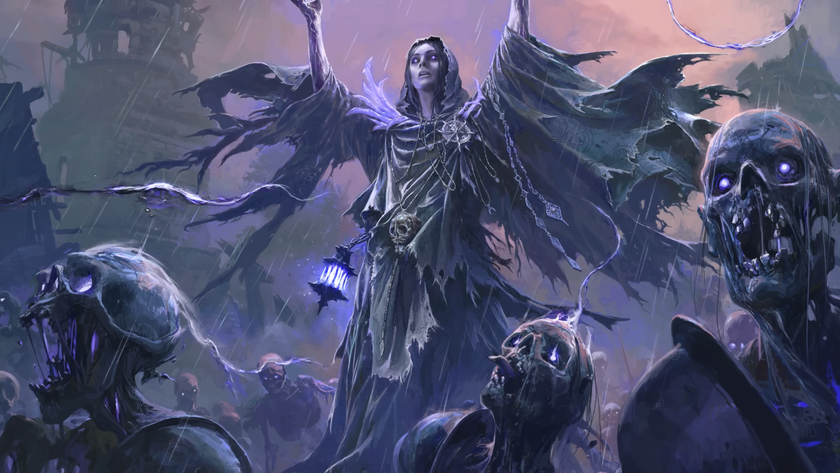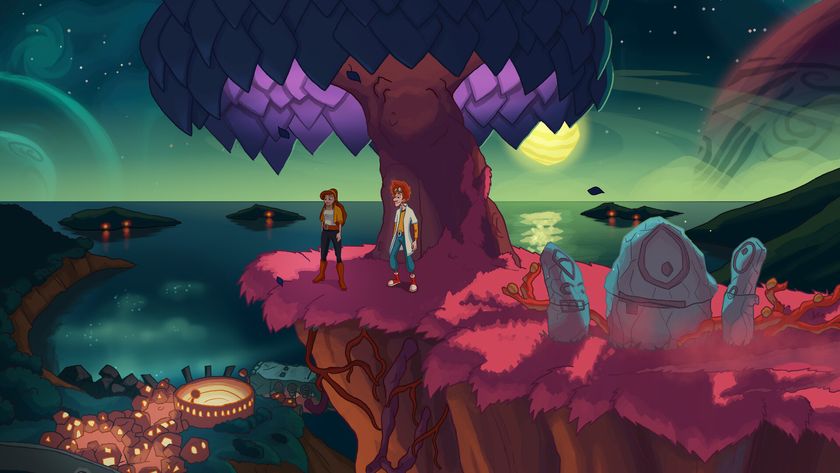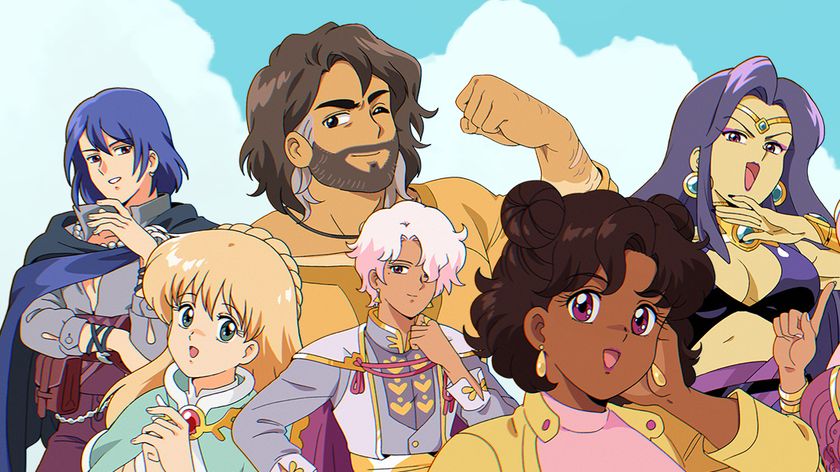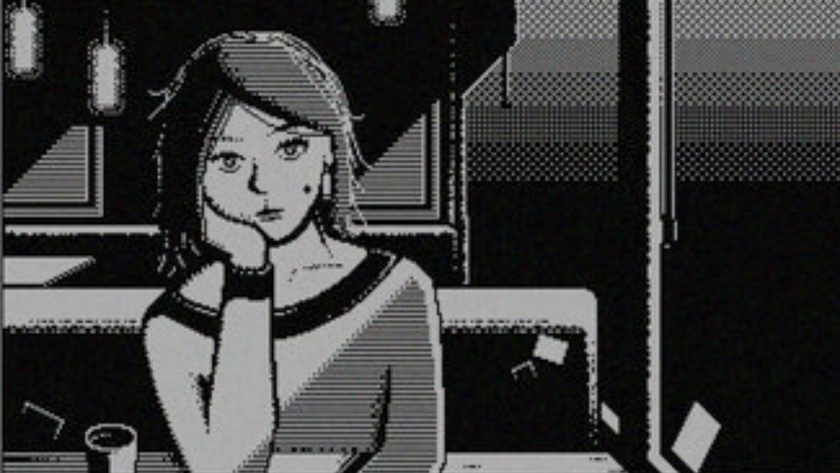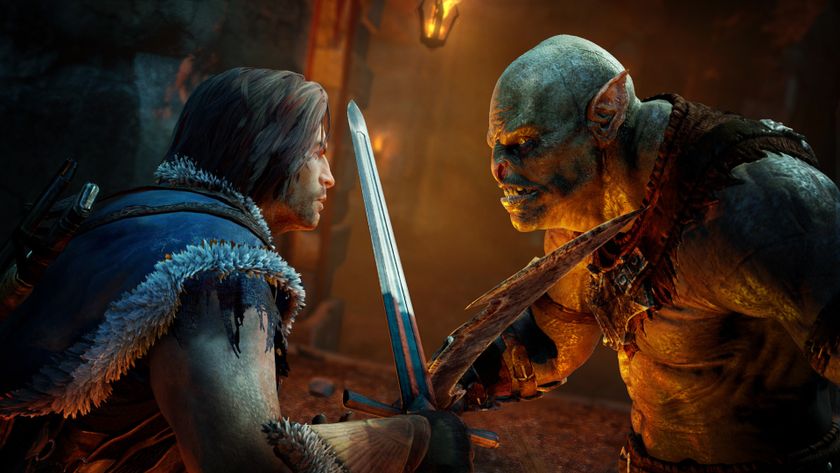How the Endless series reimagined the 4X strategy genre
We talk to developers Amplitude about their aims and inspirations.
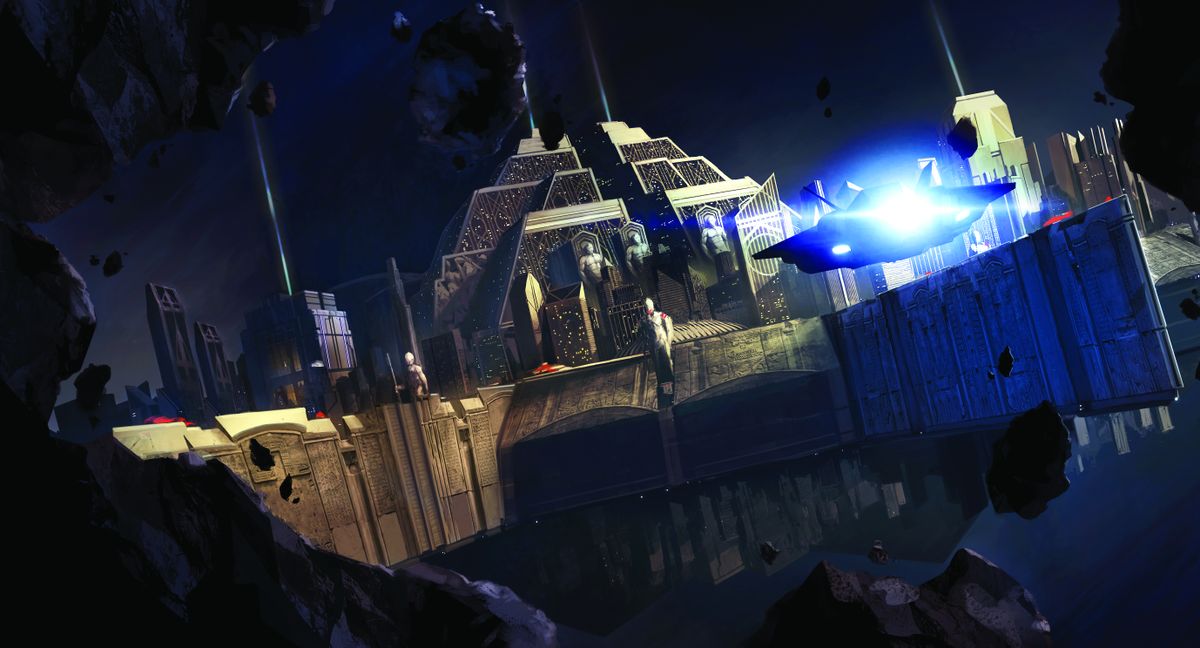
This article was originally published in PC Gamer issue 312. For more quality articles about all things PC gaming, you can subscribe now in the UK and the US.
The arrival of a new 4X game is a special event in the PC gaming calendar, like a solar eclipse passing across a world split up into tiny hexes. It’s rare enough to feel monumental, yet comforting in its cyclicality; a sporadic dose of complexity reminding us PC gamers that, despite our growing propensity for couch gaming, there are some pleasures that remain unique to us. One year there’ll be a Civ game, another year there’ll be a Gal Civ and then an Age of Wonders. Fill any gaps with meaty DLC, and repeat the cycle.
But between 2012 and 2017, a trifecta of games from an upstart French developer shook up this 4X hegemony. Amplitude Studios’ Endless Space (2012), Endless Legend (2014) and Endless Space 2 (2017) reinterpreted the 4X playbook, working within its strict rulesets to push the genre further than it had ever gone before. Two of the leading figures in this 4X supernova are Romain de Waubert, cofounder of Amplitude Studios, and Jeff Spock, narrative director on the series. The Endless games have a strong narrative thrust, interconnected by a story about an extinct, advanced civilisation—the titular Endless—that destroyed itself through infighting. There is no expository intro in any of the games. Instead, you learn about the lore by finding artefacts, carrying out quests and exploring planets and the vestiges of lost civilisations. Even something as fundamental as researching technologies is a pithy lesson, as most techs in the game originate from the Endless.
Spock believes that the 4X genre lends itself naturally to a subtle brand of worldbuilding, which still affords the player the agency they’ve come to expect from a 4X game. It was important to maintain that Civ ethos of enabling the player to create their own narratives, all the while offering compelling stories. “Because it’s a procedurally generated game, you don’t need a traditional storyline. It’s the player’s story, not the designer’s story,” he says. To that end, there are no cinematics. Instead, the Endless series relies on hand-drawn pictures and evocative prose. Quests are tales of monsters that you can hunt in haunting, misty oceans, or of species that worship mysterious beings that predate even the Endless. “I think it’s more interesting to use text and 2D images, and allow the player to come up with the rest of the imagery. All we want to do is keep throwing coal into the engine so whatever they’re imagining is rich and meaningful,” Spock tells us. “We definitely shouldn’t take over the imagination of the player,” adds de Waubert, “because then it wouldn’t be 4X anymore.”

Even in the short time span between the games, Amplitude has made iterations to abide by de Waubert’s sandbox paradigm. It’s why between Endless Legend and Endless Space 2, the faction quests evolved from linear to choice-driven. At a story juncture for the tree-loving Unfallen faction, for example, you need to pick between showing the galaxy that the faction won’t be swayed from its pacifist principles, or—in a flourish of doublespeak—that it’s prepared to defend those principles with force. The quest goals force you to channel production either into influence or military power, but you can take the path best suited to your unique circumstances in a given game. The faction quests become integrated into the game’s systems, rather than layered over the top of them.
An expansionist empire in Civilization may get a unique building with extra productivity and a couple of passive traits to help you spread your borders, an Endless game takes the idea to its extreme.
Balancing is a major preoccupation for 4X devs, and the megapatches that tend to follow most releases spend much of their time tweaking units, movement, faction bonuses and buildings to make sure the game feels just right. But Amplitude has embraced the joys of misbalance, making each faction drastically different. “With every other faction [apart from humans], we try to break at least one major rule,” says de Waubert. “And by breaking this rule, we accept that our game will probably not be very well balanced in the end. But that’s fine, because once the player’s aware of that, it lets them go crazy.”
So where an expansionist empire in Civilization may get a unique building with extra productivity and a couple of passive traits to help you spread your borders, an Endless game takes the idea to its extreme. “We’d be in a meeting with designers and say, ‘We need a faction that’s expansion-oriented—they need to keep growing and conquering,’” says Spock. “So maybe it’s uncontrollable population—rabbits in space, you know?” The end result of this thought process was the Craver faction of Endless Space (though the only cunicular thing about them is their invasiveness). These insectoid creatures were created by the Endless for war, and their voracious consumption makes them the only faction to fully deplete planets of all their natural resources, forcing them to move onto the next star system, enslave whoever lives there, bleed it dry, then move on again. The Cravers are incapable of signing peace treaties, so you play in a perpetual cycle of consumption and war. Balance be damned.
The biggest gaming news, reviews and hardware deals
Keep up to date with the most important stories and the best deals, as picked by the PC Gamer team.
These kinds of idiosyncrasies exist across most Endless factions. The Cultists can only build the one city but amass armies by indoctrinating minor factions around the world. The Riftborn from Endless Space need to spend industry to reproduce (they’re manufactured rather than conceived). The Roving Clans can’t declare war, and instead exert control through the Marketplace: a global market with a dynamic economy that they can shut other factions out of.
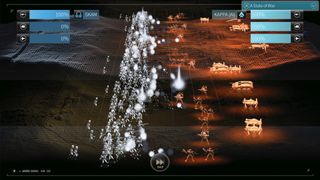
In a sci-fi or sci-fantasy world, de Waubert believes that the “alien-ness of aliens” needs to be captured, praising the variety and weirdness of interstellar species in the TV series Babylon 5 and Iain Banks’ Culture novels. “If we were to say, ‘Here come these amazing mushroom men that reproduce through spores, but they have +2 Growth and -2 Industry, it just doesn’t work,” says de Waubert. “They have to break the game, otherwise the whole imagination of the sci-fi universe is broken.”
A similar approach has since been seen in the Total War: Warhammer series, from Creative Assembly. The fantasy premise has allowed it to let loose with systems that weren’t possible in the historical settings. In Warhammer II, Skaven cities only appear as ruins to other players, while High Elves can manipulate and spy on their opponents via diplomacy. De Waubert reveals that the two fellow Sega developers have been exchanging ideas, but stops short of claiming credit for Total War’s innovations. “We try to learn from their experience, and share everything we can with them,” he reveals.
All these asymmetries and imbalances may sound intimidating to the 4X outsider. But where the blockbuster Civilization series is, to an extent, fettered to its own legacy, and inhibited from making drastic changes to make it more accessible, Amplitude got to approach the genre afresh, with a new generation of potential 4X gamers in mind. “When you’re starting on a blank page, you can do things differently,” de Waubert says.
“Half the effort with traditional 4X games was trying to figure out the interfaces,” says Spock. “You’d have to click through three menus then find a slider bar and under that you’d find another few options. We wanted to put an end to that.” Take the ‘Citizen Management’ screen in Civilization, where you assign population to gathering science, food and industry. For years, it’s remained largely similar—a system where you assign citizens to specific tiles surrounding the city, counting the amount of each resource on each tile. The Endless series simplifies this by not even having a separate screen for managing city production, but a small table overlay where you can drag and drop citizens between the resources you want them to generate. All the info you need is right there in the table, and the effects are immediately obvious.
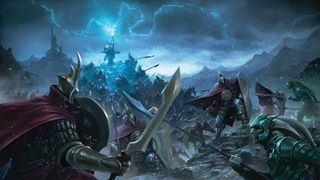
Spock says that the goal of this “beautiful, streamlined interface is that the player could get anywhere in two, three clicks”, but that doesn’t capture the omniscient feel of managing your empire in Endless Space 2, where you can seamlessly zoom from a galaxy-wide view to a star system to a planet in a couple of seconds by scrolling. Press the spacebar on a planet or star system, and you ‘scan’ whatever is highlighted. The interface posits you as an emperor, interacting with your hologram terminal, using graceful hand gestures; it feels like a modern, less intrusive answer to those clunky metallic interfaces of ’90s titles, like Fallout and Alpha Centauri, which aims to immerse players by allowing them to look at the game world diegetically.
The interface posits you as an emperor, interacting with your hologram terminal, using graceful hand gestures; it feels like a modern, less intrusive answer to those clunky metallic interfaces of ’90s titles.
This is a series of decluttered design elements, and both Endless Legend and Space follow the same principles to keep things looking clean. There are only a handful of unit types per faction, and you’re best off keeping them stacked in dedicated hero-led armies. Instead of inundating the player with increasingly advanced units through the tech tree, the games let you upgrade existing unit types through new weaponry and equipment—a system that’s instantly familiar to a playerbase more attuned to roleplaying game elements than it was even ten years ago. “Today, RPG elements are a reflex for the player, and a reflex for the creator,” says de Waubert. “But you need to not get lost in it. You have to keep in mind that the player is still an emperor, not a bunch of heroes.”
Citybuilding in Endless Legend borrows from its cosmic counterpart, where you’re confined to colonising existing planets and star systems. In Legend, the rule is that you can only build one city per region. “Having to handle 20 cities in the late game isn’t so much fun, and we didn’t want to bog players down with micromanagement,” de Waubert tells me. Some of the greatest moments in Civilization come in those first 100 turns, when the world is uncharted and uncovering it is fraught with danger and excitement. By preventing overdevelopment of an empire, de Waubert says, “You get to keep these wild places in the world where mystery always exists.”
“It’s more interesting if you have five or six important cities, where each of them matter and develop a character,” adds Spock. “The science one on the river, the military seaport city—this change from traditional design adds a layer of immersion that we feel improves the experience.” One of the big introductions in Endless Legend was districts, letting players spread cities across multiple tiles, bringing in more resources as well as building a distinct visual character for each city. When Civilization VI was announced in 2016, a similar districts system was its most touted feature, offering players ‘de-stacked’ cities for the first time in the series. Amplitude is proud to have fed back into the series without which it acknowledges that its own venture wouldn’t have been possible. “We know guys at Firaxis. It’s a collegial competition,” says Spock. “If we always get jealous guarding our things and spiteful when people use them, the ultimate loser will be the player.”
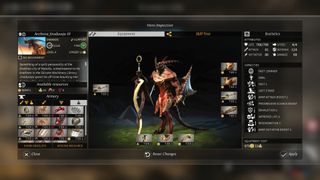
The design philosophy of the series can be partly attributed to Amplitude swearing by the Early Access model, building up a community of backers that’s been offering nonstop feedback since 2012. It’s helped the studio understand what players want from a 4X game, especially in the early days when, de Waubert admits, “We had a bunch of ideas, but didn’t know how to make 4X.”
Five years on, and Amplitude has created the first great 4X series of the Early Access generation and a distinctly modern classic of the genre, offering a fresh perspective that the stalwarts are already learning from. They’ve overcome longstanding 4X problems, combating mid-game lulls with compelling narratives and creating interfaces that aren’t tied down by a lineage dating back 15 or more years. De Waubert assures us that “this is only the beginning” for the Endless saga—the first intrepid turns in a new instance of the 4X game, where rules are being broken and balance has been thrown out of the airlock for the better.
Robert is a freelance writer and chronic game tinkerer who spends many hours modding games then not playing them, and hiding behind doors with a shotgun in Hunt: Showdown. Wishes to spend his dying moments on Earth scrolling through his games library on a TV-friendly frontend that unifies all PC game launchers.
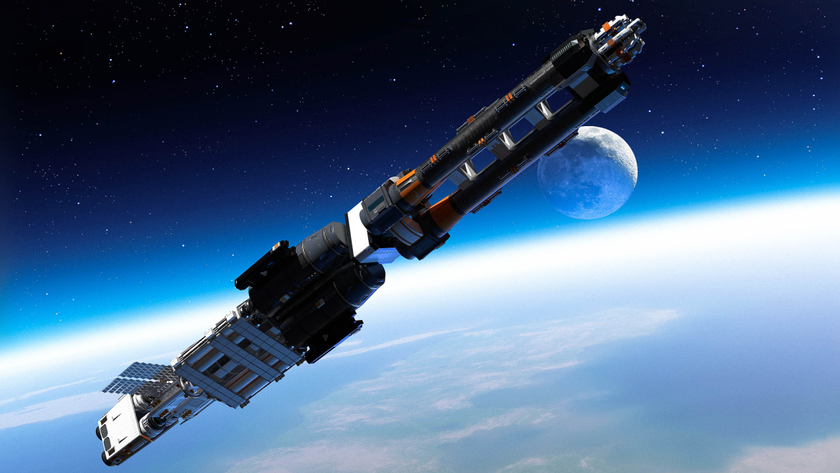
Terra Invicta, the space 4X from the creators of XCOM's Long War mod, just got a massive update that adds exofighters, improved diplomacy, and 'advanced weapons' for its alien menace
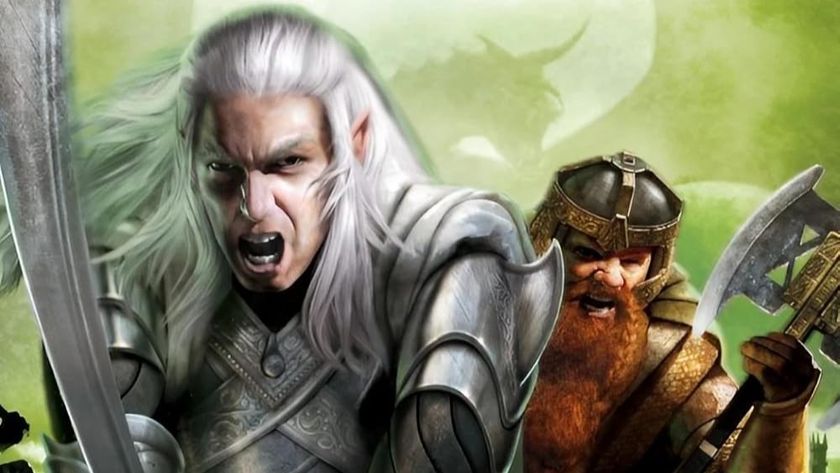
After a whopping 13 years in development, the Battle for Middle-earth's Extended Edition mod finally gives the beloved RTS the full Peter Jackson treatment


